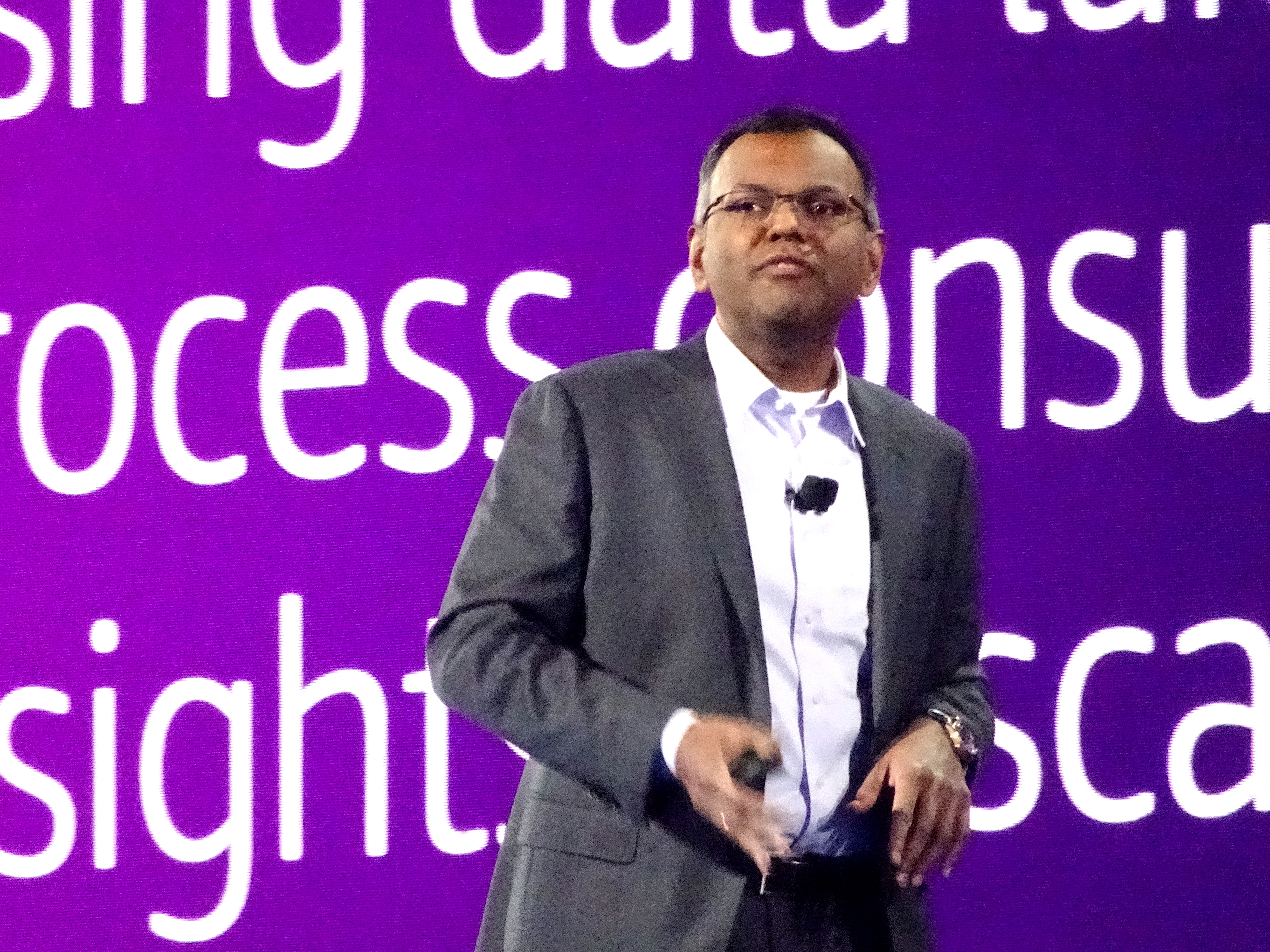 AI
AI
 AI
AI
 AI
AI
Amazon Web Services Inc. is betting big on artificial intelligence as it scrambles to gain mindshare from perceived leaders such as Microsoft Corp., OpenAI and Google LLC, and AWS Vice President of AI and Data Swami Sivasubramanian is the key executive driving those effort.
In an exclusive video podcast conversation with Sivasubramanian, who was one of the pioneering engineers behind DynamoDB and RDS, we dove deep into the transformative power of generative AI, agentic systems and the critical role of data in shaping the future of enterprise applications. As we approach AWS re:Invent next week, this discussion offers unique insights into the innovations redefining productivity, data analytics and AI-driven business processes.
Swami highlights how innovations such as the enterprise AI agent Q and gen AI app creation platform Bedrock are not only saving Amazon developers thousands of hours but also empowering business users to achieve “10X productivity” by simplifying data access and automating workflows. By democratizing data for nontechnical users and integrating diverse datasets, AWS is enabling enterprises to make faster, smarter decisions. Swami underscores that productivity is the true “killer app” of generative AI, setting the stage for a new era of efficiency and innovation across industries.
Swami reflects on the journey that brought us to this moment in AI history:
We are having this moment because a lot of things came together — deep learning neural nets from 30 years ago, transformers unlocking unsupervised learning, and the cloud enabling seamless storage and computation.
This convergence, he notes, created the foundation for large language models, which are now transforming industries by learning from massive datasets. But 2023, he says, was just the starting line:
2023 was about proof of concepts. In 2024, it’s about real ROI — deploying gen AI systems and agents that save money or increase revenue.
A defining example of AWS’ innovation in action is Q, an AI-powered agent that Swami uses personally:
Q transformed how we upgraded Java packages. It analyzed dependencies, suggested changes, and automated 90% of code reviews. This saved 4,500 developer-years and $250 million in capex.
These savings go beyond coding. Enterprises like Pfizer and Toyota have leveraged Q to streamline processes, saving billions. Swami emphasizes that the real power of gen AI lies in mapping business problems to the right data and leveraging cutting-edge LLMs:
The efficiency of productivity is going to be 10X. Hundreds of thousands of customers are already realizing this with AWS.
One of the most exciting shifts Swami highlights is the democratization of data for business users. Traditionally, technical expertise was a bottleneck in unlocking insights. Now, tools like Q and QuickSight are enabling business professionals to harness the power of data without needing a Ph.D. in SQL:
With Q, you can ask for insights in natural language and get dashboards or data stories in minutes. Tasks that used to take weeks now happen in seconds.
This shift, he explains, is redefining productivity:
Cloud made developers 10X productive by eliminating undifferentiated heavy lifting. GenAI is now doing the same for business users.
Swami predicts a seismic shift as enterprises move beyond unstructured data (text, images) to integrate multi-modal datasets:
Imagine querying relational databases, streaming real-time data, and blending this with unstructured data. That’s the future.
He cites BrainBox AI’s ARIA assistant, which uses building schematics and energy consumption data to optimize efficiency:
ARIA identifies patterns like increased energy use on a specific floor and provides actionable recommendations. This used to take months — it now happens in minutes.
This ability to fuse diverse data types opens the door to unprecedented innovation across industries — from transportation to marketing to supply chain optimization.
As generative AI becomes a critical business tool, concerns around security and accuracy grow. Swami underscores the importance of resilience in AI applications:
Contextual grounding is key. Guardrails ensure AI responses are accurate, secure, and actionable. At AWS, we’re investing heavily in these areas.
He envisions a future where AI systems seamlessly integrate with enterprise data, offering not just accuracy but confidence:
The ability to map data to LLM responses and refine contextual grounding will be a game-changer.
Echoing AWS Chief Executive Matt Garman’s sentiment, Swami reaffirms that productivity is the killer app for gen AI:
From automating mundane tasks to enabling strategic decision-making, gen AI is empowering enterprises to achieve more with less effort.
The result? A shift in the labor equation:
Developers focus on innovation, not debugging. Business users gain instant insights without needing technical expertise. And enterprises achieve a step-function increase in efficiency. The cloud has changed the equation and made developers like 10X productive so what is happening with the gen AI world, the business users are now actually 10X productive.
Our conversation with Swami highlights the pivotal moment in technology and business history. As AWS continues to invest and drive more viable generative AI, the opportunities for transformation are limitless. From streamlining code upgrades to revolutionizing enterprise processes, the innovations discussed here signal a new era where data, AI, and cloud infrastructure converge to unlock unprecedented value.
This is just the beginning. The ability to turn months into minutes will redefine how we work, innovate, and solve problems.
As AWS continues to shape the future of generative AI, the challenge will be balancing innovation with resilience — ensuring these systems remain reliable, secure and transformative for businesses worldwide.
Support our mission to keep content open and free by engaging with theCUBE community. Join theCUBE’s Alumni Trust Network, where technology leaders connect, share intelligence and create opportunities.
Founded by tech visionaries John Furrier and Dave Vellante, SiliconANGLE Media has built a dynamic ecosystem of industry-leading digital media brands that reach 15+ million elite tech professionals. Our new proprietary theCUBE AI Video Cloud is breaking ground in audience interaction, leveraging theCUBEai.com neural network to help technology companies make data-driven decisions and stay at the forefront of industry conversations.